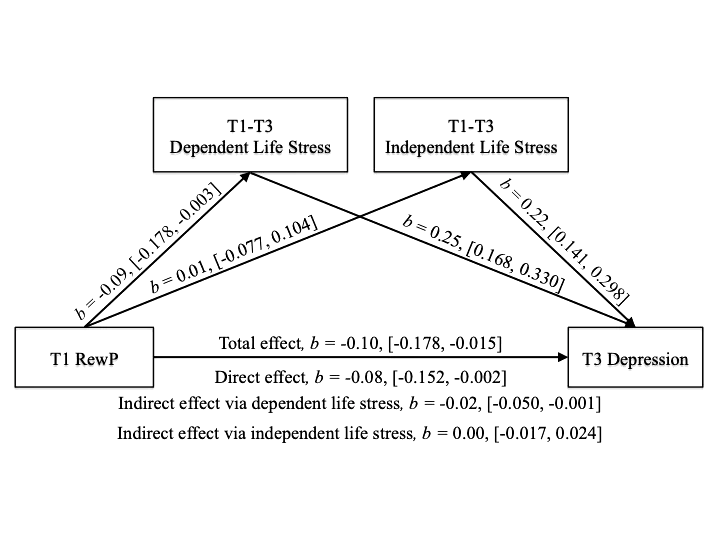
Abstract
Blunted reward sensitivity and life stress are each depressogenic. Additionally, individuals with clinical and psychosocial vulnerabilities are prone to experience or evoke dependent life stressors (e.g., interpersonal conflict) that, in turn, increase depression risk. However, no previous study has investigated the role of neural vulnerability factors in generating life stress. Therefore, the current study investigated whether a neural measure of reward sensitivity prospectively predicts the generation of life stress, which in turn mediates effects of these neural processes on subsequent depression. Participants were 467 never-depressed adolescent girls. Using event-related potentials, neural sensitivity to the difference between monetary reward and loss (the Reward Positivity [RewP]) was assessed at baseline. Negative life events were assessed twice via interview over the ensuing 18 months, yielding an index of total life stress over the follow-up period. A self-report dimensional measure of depression symptoms was administered at baseline and follow-up. After accounting for baseline age, depression, and race, a blunted RewP predicted greater dependent, but not independent, life stress over the follow-up. Mediation analyses revealed a significant indirect effect of the RewP on follow-up depression through dependent, but not independent, life stress. Our results suggest that neural processing reward and loss plays a crucial role in depressogenic stress generation.